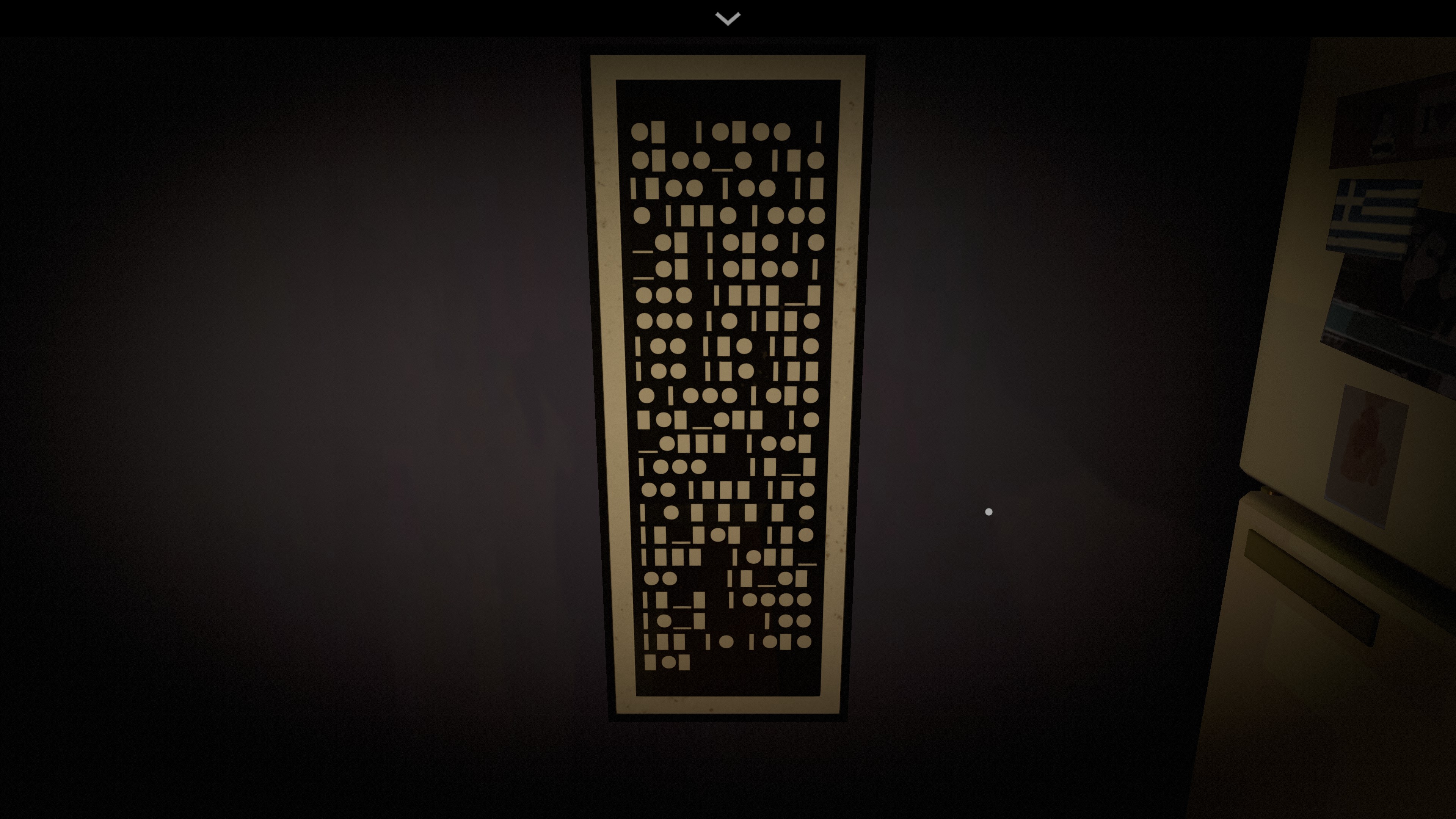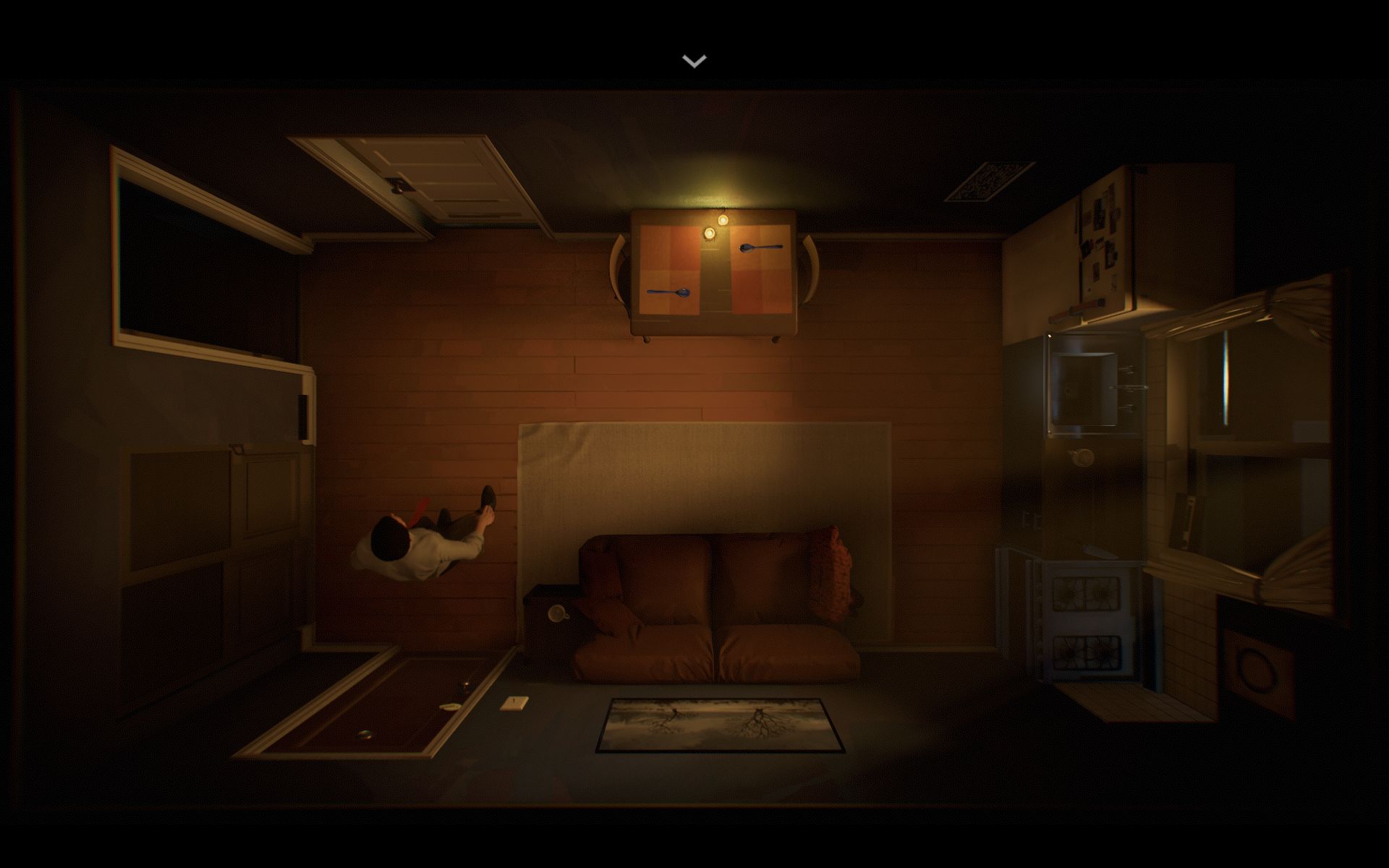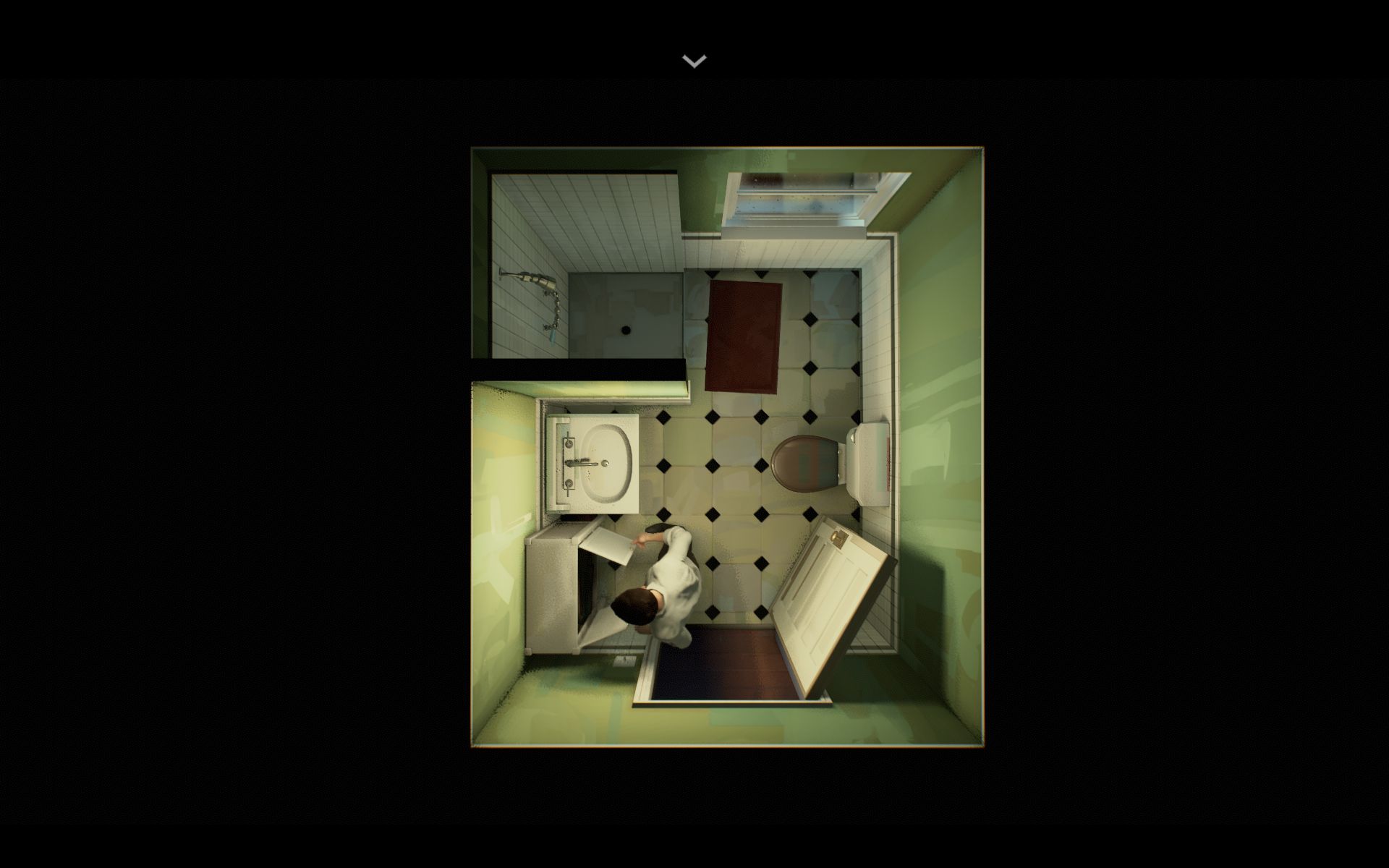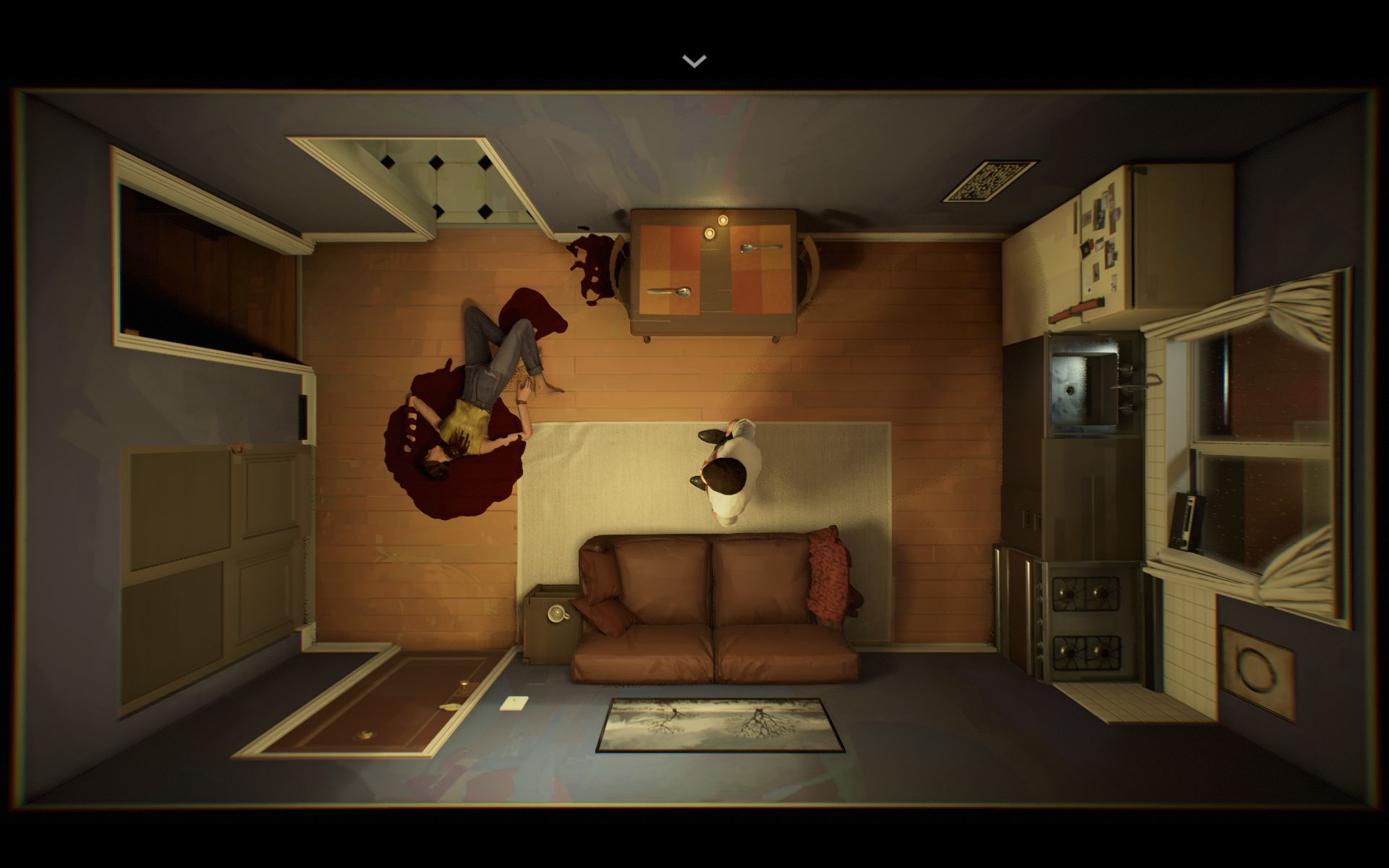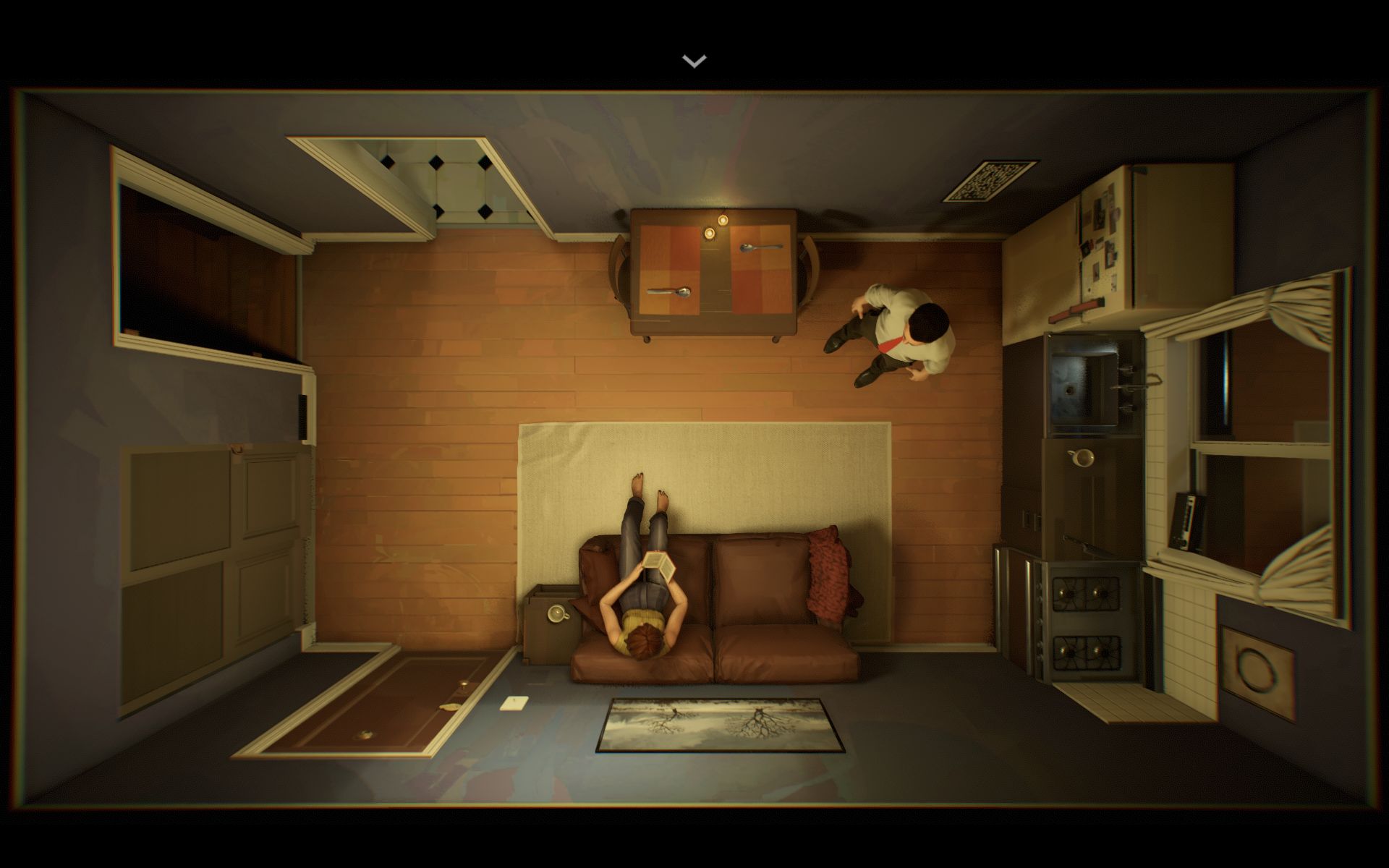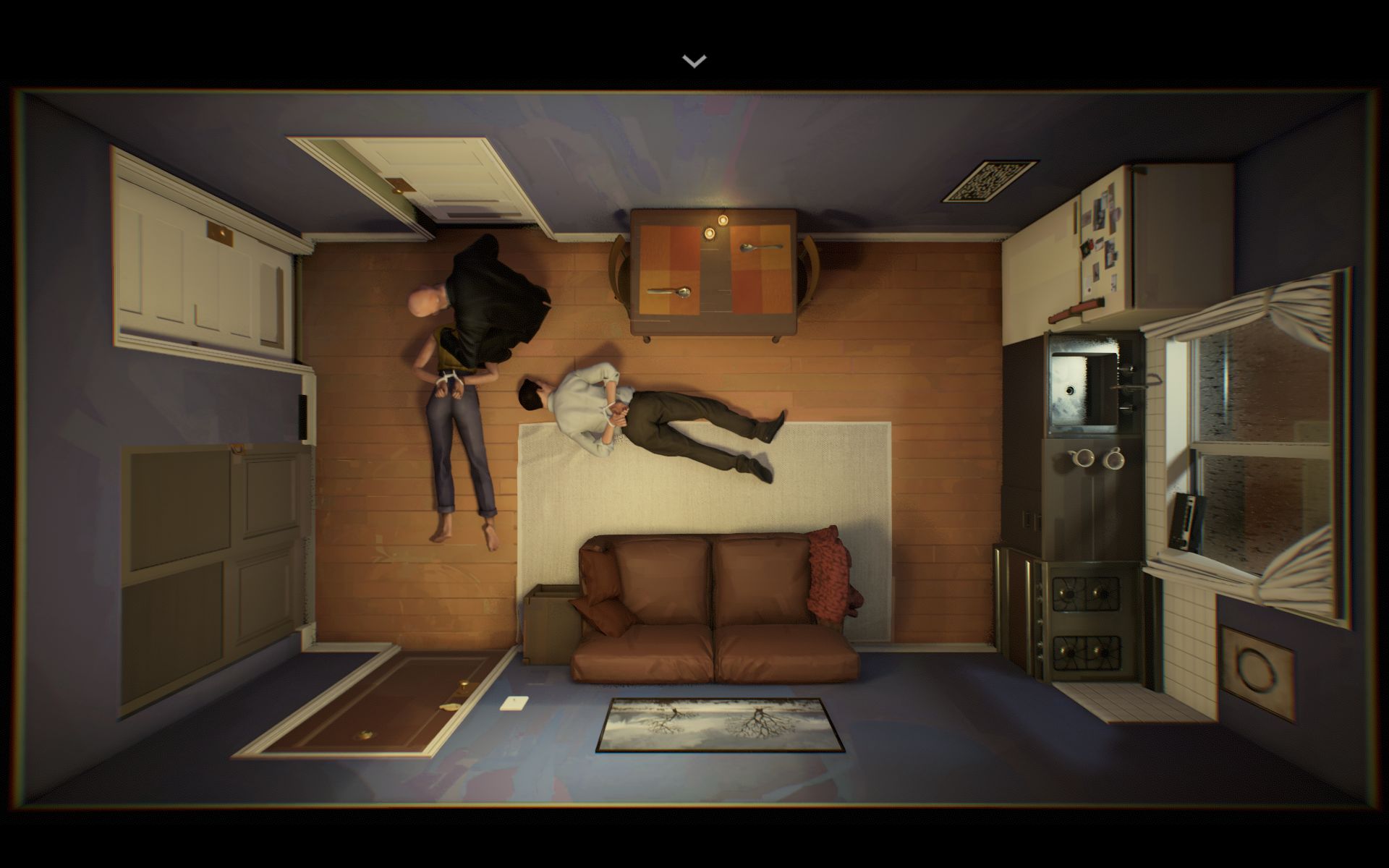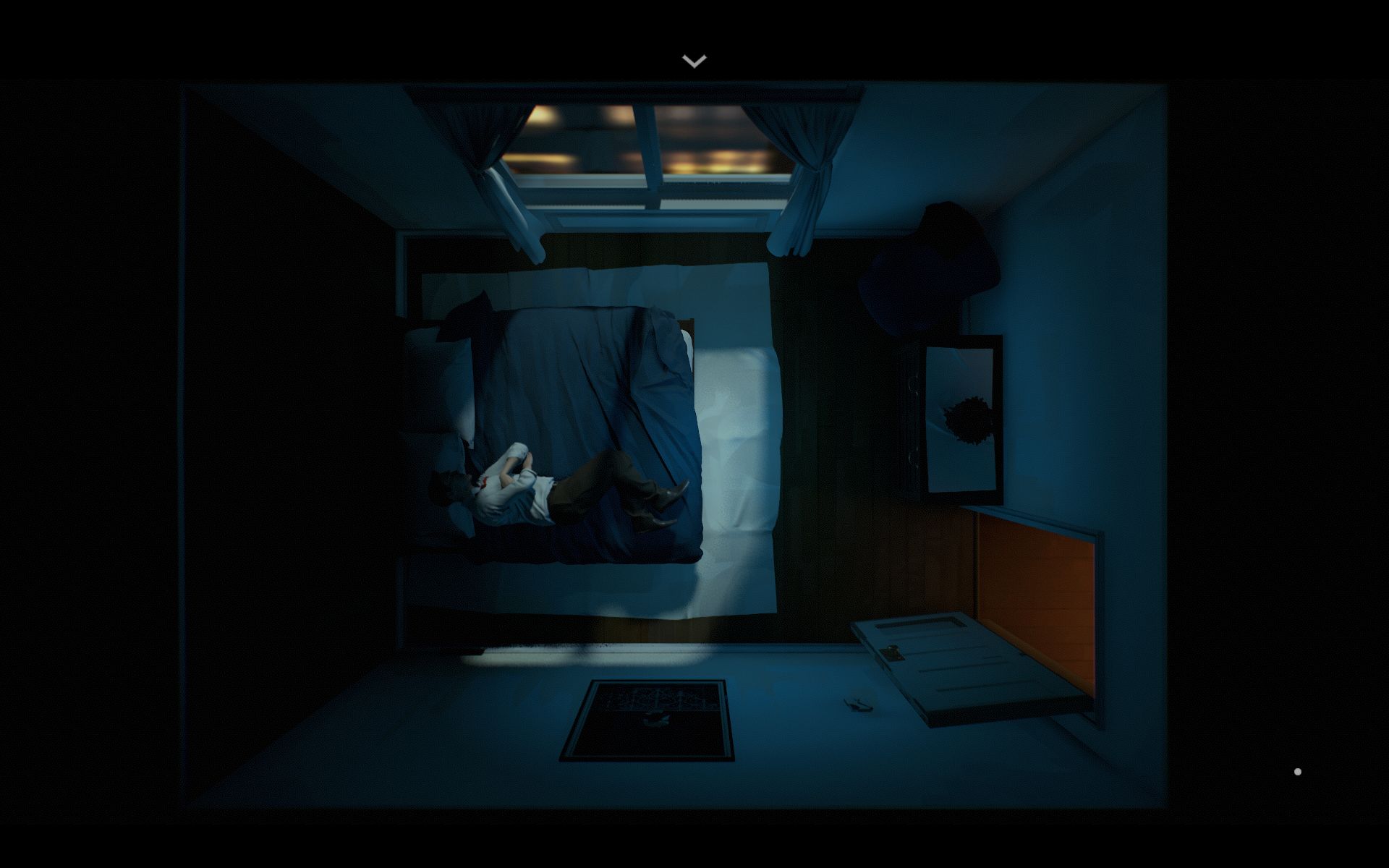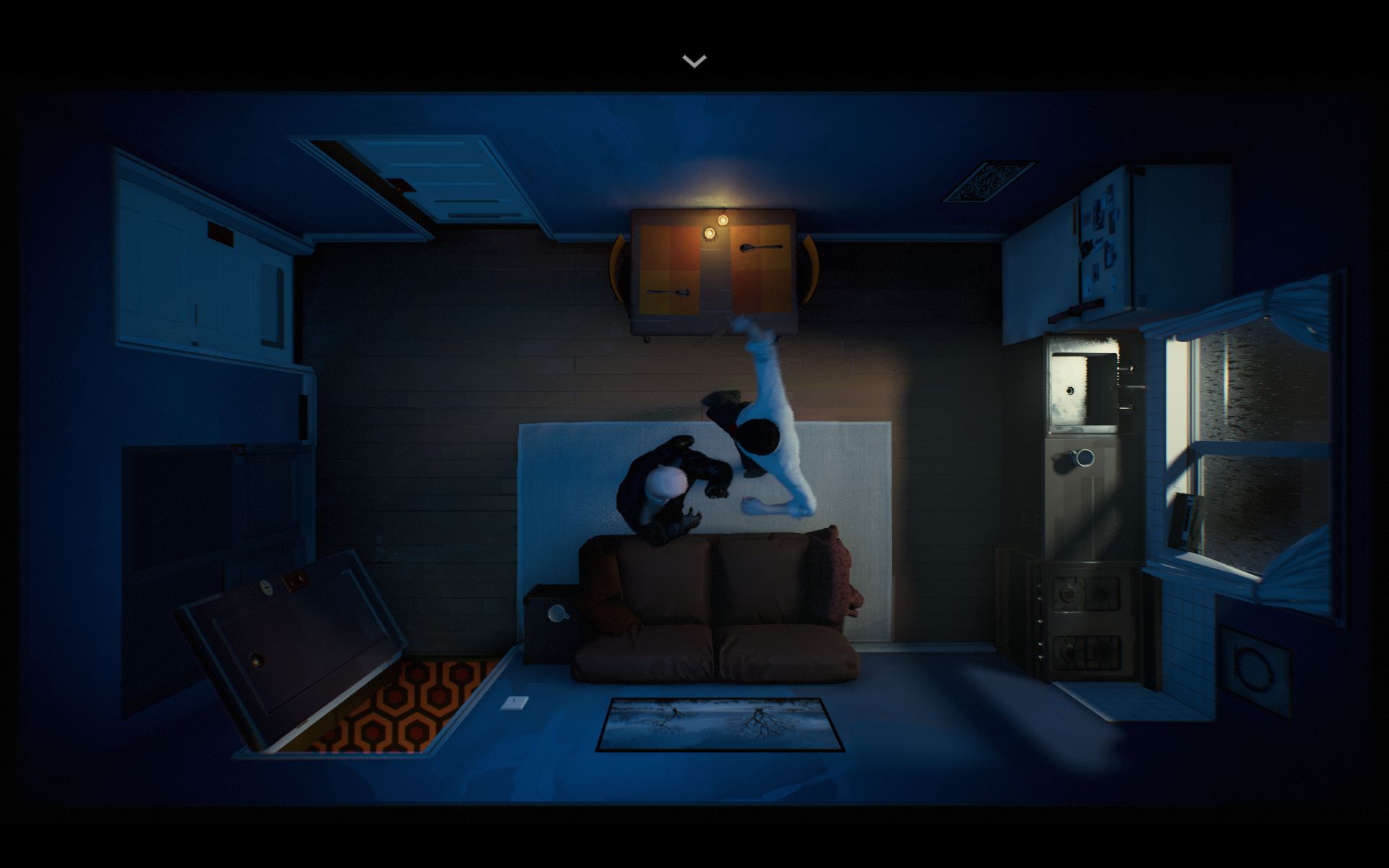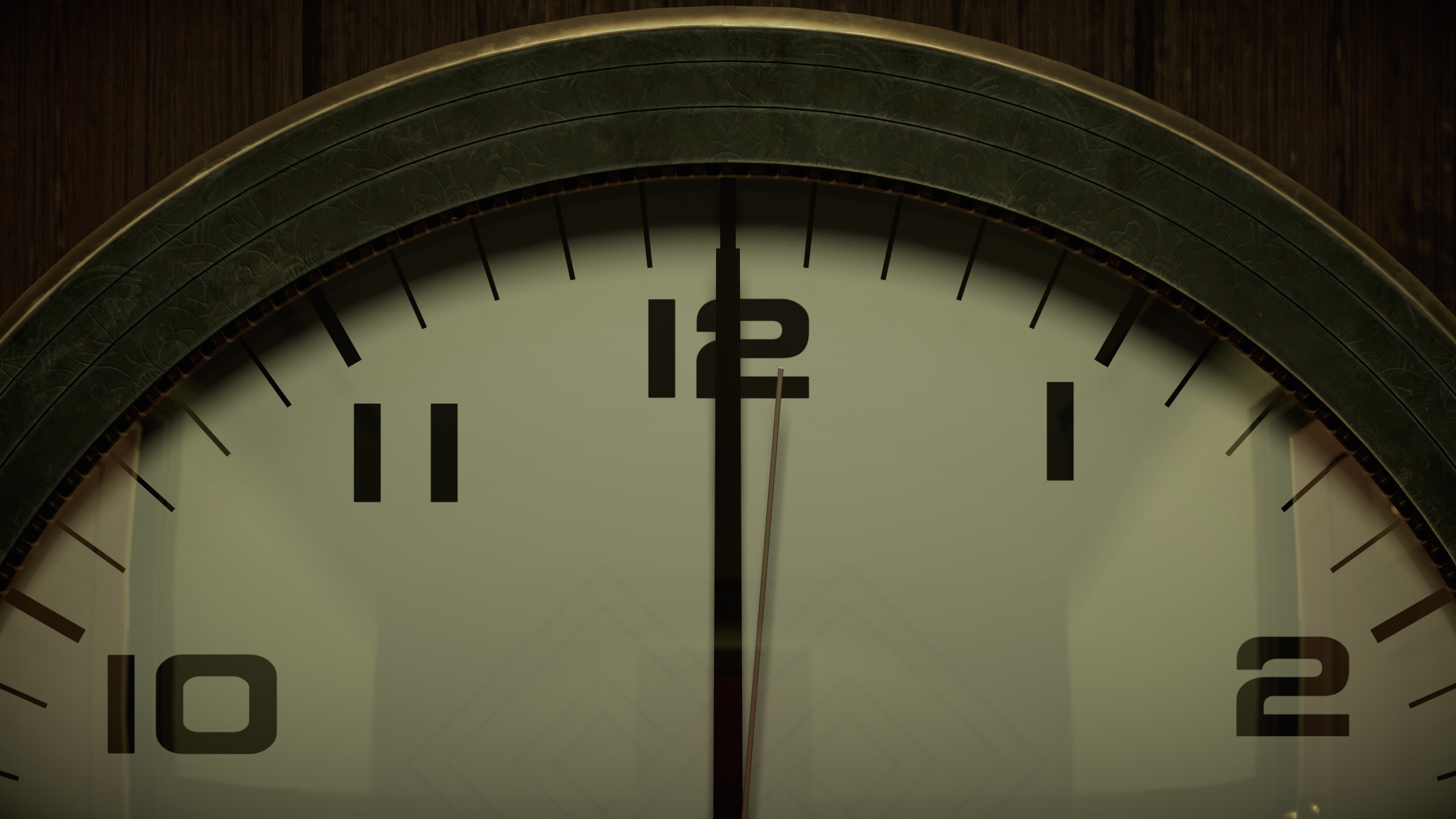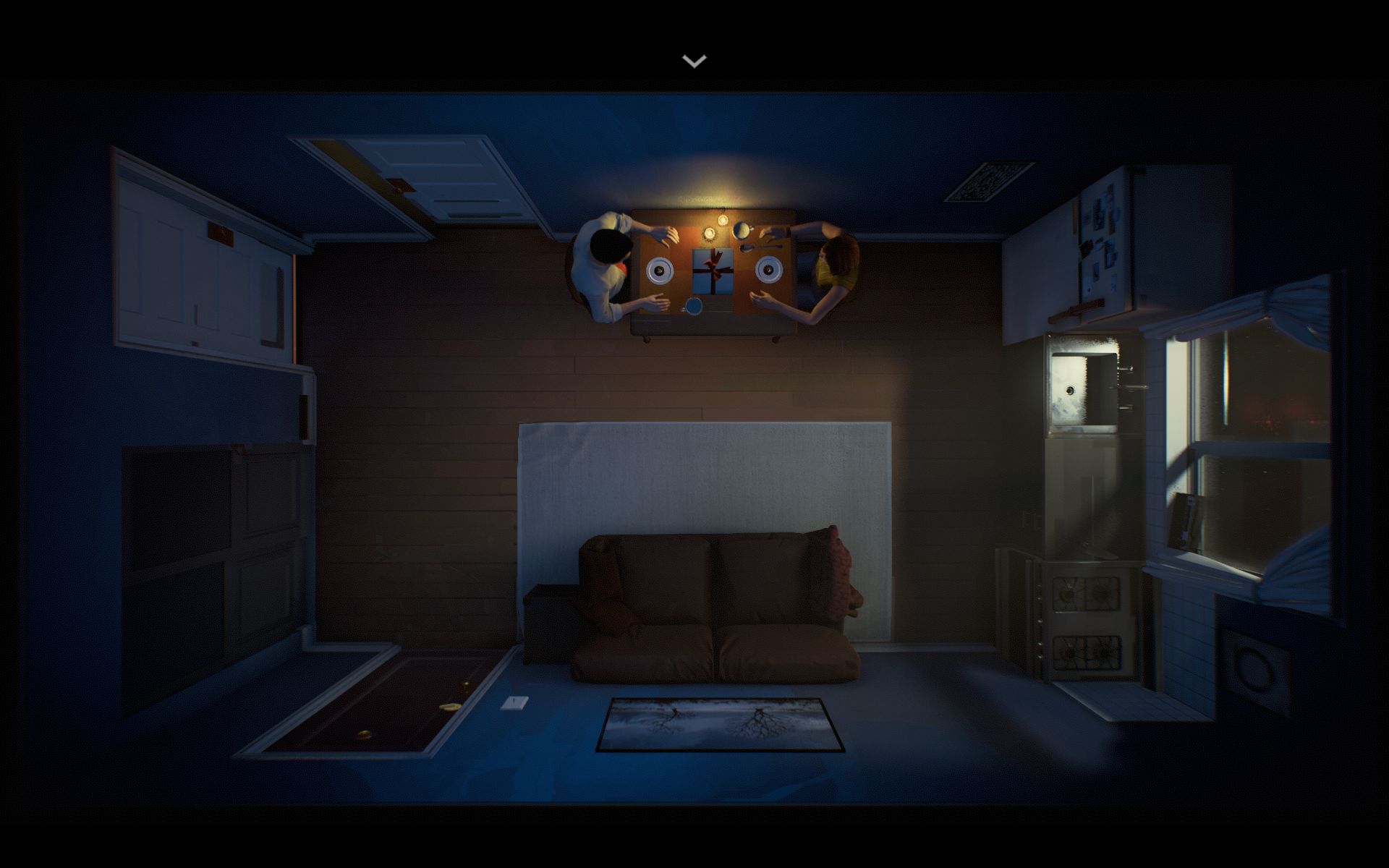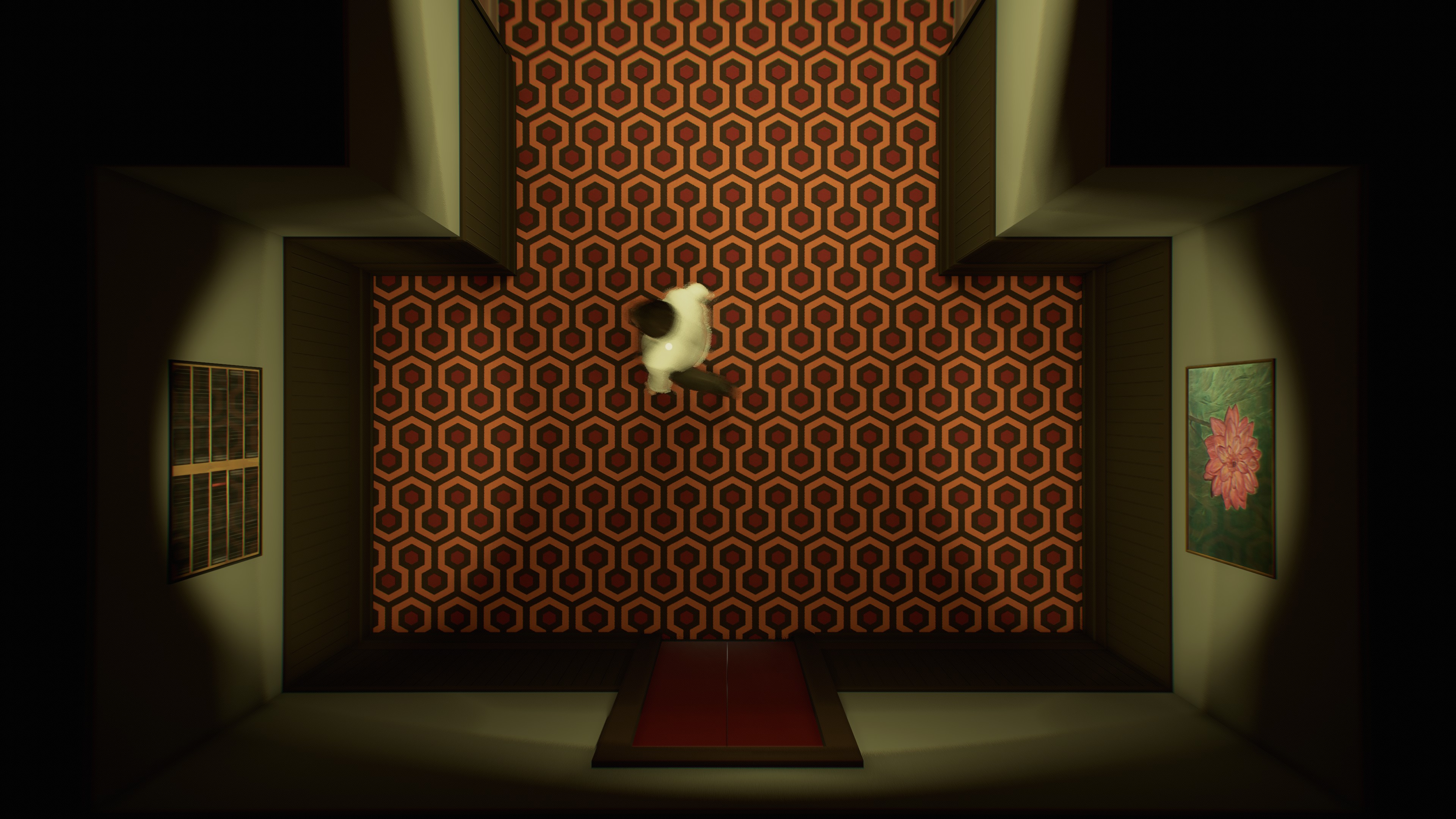
I've tried to avoid spoilers, but if you want to go in completely cold, I suggest reading only the first three items and saving the rest for later.
- The light switch in the bedroom should do something significant if flipped twice. If it does not, reload or keep trying on other loops until it does, then make use of that information as you see fit. I ran into a bug where the switch simply acted normally on the second flip, and I wasted an hour trying futilely to act on incorrect knowledge.
- The Morse code painting is a stupid aphorism and not worth deciphering.
- THE ENDING and its terribleness have captured most of the conversation about the game - in fact, that's a big part of why I played this game: to see what everyone was talking about - but I think that concentrating on the particular aspect of the terrible ending that's received so much attention fails to explain completely why so many are coming out of this game so profoundly unsatisfied. It's more than just a single element at the end (though it is a significant element), or even that the journey proves ultimately not to be worth undertaking. The journey itself is a long exercise in frustration and unfulfillment. Twelve Minutes is extremely persnickety about timing and precision and everything-in-its-place and is not shy about resetting its time loop for the slightest offense; I got booted one time because my character shifted on a sofa. Though the game offers shortcuts for some processes, experimenting with how to progress after a certain point requires grinding every single time through an exhausting Rube Goldberg-like laundry list of setup busywork (that, of course, is prone to errors and the aforementioned resetting due to the sheer number of steps involved) to get back to the specific scenario that requires advancement. Furthermore, the game will let you chase down a number of avenues that lead to complete dead ends - there are so many "discoveries" that do absolutely nothing. Making progress is at once hair-pulling and extraordinarily tedious - the game has absolutely no respect for your time.
If you make it through, you'll reach a point where the game's narrative could have reached a perfectly satisfactory, graceful little conclusion. It chooses instead to go for one more twist - the mean, rancid twist that turns the entire story into a malicious joke and has prompted all the "worst ending of the year" talk. But then - and no one talks about this - there's another twist that undoes everything that came before that. One of the big radioactive twists in fiction - the biggest, most hackneyed cliches. The preceding couple of sentences probably brought to your mind two possible twists. It's one of those two. And it undoes everything - except for the nasty bit of material that has everyone trash-talking the title. This is, top to bottom, a tremendously unrewarding game. - To expound, without spoilers, on the primary objectionable story element a bit more: it reminds me of the Kevin Smith story about meeting a director to write a Superman film, and the director starts enumerating the elements that he thinks are sine qua non for a Superman movie, elements that he's just sure big comics fan Kevin Smith will agree are indispensible, and the first three are sensible requirements for a Superman story, and the fourth is that a giant spider has to be in the movie. (The director went on to make the Wild Wild West movie, which featured in its climax a giant mechanical spider.) Of all the things on which to center a narrative, how did the writer end up focusing on this one? As Alex Navarro said on the Nextlander podcast (which I found as I was surfing around looking for reactions to this thing): "If that was the story that dude had in mind all this time, I'm amazed someone put money behind that shit."
- I've seen a number of reviews state that the level of violence is unacceptable. What these reviews don't mention is that they're committing it themselves, unnecessarily. You will have to watch your character get strangled numerous times, which is the end of the home invasion scenario, and you do have to drug a character repeatedly to knock them out. You also have to shoot the home invader/cop in the arm at one point, which multiple outlets have deemed "torture" but I certainly did not see as such - you have the guy's wrists restrained, but even when you're trying to talk to him reasonably, he keeps trying to struggle free and fuck you up (which he will, if you don't do something); shooting him in a nonlethal area is the only way to subdue him, and as he will kill you absent intervention, I really didn't feel too bad about this. The most violent mandatory thing is that you have to watch the wife get roughed up to get a certain clue - which is absolutely not pleasant. (That said, I understand you can skip even this if you're unsuccessful enough, as someone in the spoiler threads I browsed posted that the game eventually gave them this info at the end of one of the home invasion scenarios - it usually cuts out before that.)
Polygon stated that most of the violence is against the wife. It is if you kill her, which you do not have to do. (Granted, the game is obtuse enough where you might think: "...do I have to do this to proceed?" You do not.) The game also evidently allows you to collude with the cop when he subsequently walks in and stage her death as a suicide, which apparently leads to some grisly scenes. You can also shoot the cop more than necessary, shoot your wife or yourself, stab yourself, etc. etc. Again, though, all of these are optional. The game lets you be violent and go down dark paths, but complaining about this is a case of "stop hitting yourself." I did none of the above and was able to finish the game. Most of the violence I experienced was against my character, who was male (which does not make that violence right, obviously, but does make complaining about the game's violence against women specifically odd). - That said (1): The game does nearly everything in its power to make you resent your wife and treat her as an obstacle instead of a partner. She will lie to you extensively, even when it's clear your lives are at stake and survival depends on honesty. She will get you killed by insisting (not out of understandable base fear, just indignant irritation) you come and save her barehanded from the man with the gun and the knife, betraying your location (the game subscribes to that moneyed version of gender politics where the woman is nominally liberated but expects the man to do everything and thinks he can, and should, solve any problem). She will interrupt you when you're trying to get items and make preparations. She will refuse to take any measures to ensure her safety such as leaving the apartment when asked, no matter how much you plead. The game will not (until the very end) let you collude with her or make preparations for the incipient home invasion. She will insist on, and dismiss, a frustrating amount of evidence that something is awry before she'll help you. This game is going to do nothing for the declining marriage rate.
- That said (2): The game makes it easy to kill your wife accidentally, despite indicating otherwise initially. The first time I flirted with it - it was during the phase where my progress unbeknownst to me had been impeded by a bug, when I was desperate to figure out the game's chain of logic and wondering if this, of all things, was what the game wanted - the game stopped me from going through with it. It instead had the protag note: "No coming back from this. If I do this, I'm a killer forever," which I (but apparently no one else) took as a signal that "hey, don't do this." I accidentally used knife on wife sometime subsequently, with the same result, so I assumed that that warning triggered whenever you tried to knife the wife. So in the late game, when you actually are, finally, allowed to hand things to your wife in preparation for the subsequent cop encounter, I tried to hand her the knife for self-defense, in the same manner I was handing her other items. The game interpreted this as me wanting to stab her and just launched into it, without the previous prelude. I hard quit the game before the animation could really get going, so I think it didn't count, but - what?
- That said (3): I think some of the perceived severity of the violence stems from its realistic depiction in an everyday setting. The victims are mundane people usually rendered helpless and unable to defend themselves, and they're relatably panicky and scared when violence is anticipated (and near-inevitably arrives). The results aren't cartoony or clean, with execution and reactions often clumsy in a way that's simultaneously human (the mocap is very effective here) and unpleasant; if you opt to have your character use the gun on himself, for example, he'll eventually shoot himself in the head...but it goes wrong, and he doesn't die instantly. Despite the presence of blood when needed, it's not lurid or gratuitously gory (and the game's overhead perspective imparts a certain distance), but it doesn't shy away from depicting consequences. It's a marked difference from typical video game violence of glamorous fights between equally-armed, competent combatants.
I think the acting is also "helping" here. I've seen numerous claims that hiring celebrities was a waste of money, since James McAvoy and Daisy Ridley, at least, aren't recognizable with the American accents they're doing. I initially agreed with this sentiment based on the recognizability factor, but I ultimately came to think that they justified their pay based on pure performance choices. Given the marquee names recruited for the voice work, I think reviewers are expecting ACTING, but they're getting situation-appropriate acting that mostly manifests itself in smaller choices. It builds on the game's "messy and panicky" approach to violence, with the focus on cultivating various degrees of "harrowing," be it slighter - Ridley as her character tensely relates a series of events from her past she doesn't want to revisit and has scant time and, given the revelations she's recently had to process and confrontations looming, mental space to enumerate, her voice nervously rising at the end of each impatiently, uncertainly-recounted sentence - or significantly greater - as with McAvoy when the husband, in the second iteration of the stabbing scene, holds his wife close and tearfully chants "I'm sorry, I'm sorry, I'm sorry" as he knifes her like a mantra, a feeble attempt to protect and comfort himself as much as her, creating a scene that's as wrong as it should be. The numerous scenes of the husband and wife bargaining or pleading with an apparently irrational lunatic for their or their spouse's lives are wrenching without being self-indulgently lurid and make you feel the tension and panic despite the visual distance. The acting choices are effective and disturbing, and the reviewers, despite their claims, are plainly affected by them, as they're perceiving the game's violence to be more over-the-top and transgressive than it is due to the characters' voiced reactions to it. - While I'm on the subject of praise: the game's graphical style is also effective for both gameplay and atmosphere, giving a clear view of everything while at the same time putting you at a remove from it, sinister in its depersonalization. The use of sound is right, consisting of little music and mostly ambient background noise to underline and increase tension. The approach to puzzles, despite egregious missteps, is in some ways a step in the right direction: not calling overt attention to the stuff that's relevant to solutions, incorporating timing and location to avoid the typical genre trap of "use every item on every item," hiding stuff in plain sight, and the major role played by information - who's told what and when. It's the batshit endgame of the story and how it builds on the unrewarding parts of the gameplay that wrecks it. This is a game that's much less than the sum of its parts.
- To my knowledge (consisting of my own playthrough and of watching two others), you cannot successfully attack the cop while he is conscious and unrestrained. The game, in one of the many dead ends in which it encourages you to waste time, gives you to plenty of reason to think otherwise - numerous points, like the closet and shower, that seem ripe for an ambush; several moments where the cop meaningfully turns his back or is distracted; fight animations that seem to "evolve" and indicate you're learning the cop's moves with each loop and can eventually out-anticipate him. Unfortunately, the main character's code of honor or something requires him to square up face-to-face, shoulder-to-shoulder with the home invader who's killed him several times over by this point before even attempting to attack, inevitably rendering any ambush attempt moot. I wasted so much time thinking I hadn't gotten the timing just right, or that maybe a different location or scenario would help. (In fairness, the game does have your character at one point say something like, "that guy's an ox, I gotta stop trying to fight him" - but there's so much indicating you will eventually be able to fight the cop, that failure is based on something you're doing wrong.)
- Getting back to the previous point (sorry; the dumb "combat"'s too big not to mention, but it doesn't really fit in organically): I think this studio has potential; they just need (besides some beta testers to identify the deadeningly repetitive parts of their gameplay) a better story. I don't know that anyone's going to shell out for another story from this guy, is the thing.
- I know this can be explained storywise, but that watch looks totally cheap-ass and nothing meriting multiple homicides.
- Regarding the endgame, which I will spoiler despite speaking in ambiguities: After the revelation, I initially tried to confess everything - the protagonist's relationship woes and his involvement in certain events eight years ago - and take the blame for everything, even though it didn't seem entirely right (I mean, it was an accident, and neither party knew their identities). Upon hearing the whole sob story, though, the cop just up and decided "Well, fuck your shit" and just started kicking the shit out of my character out of disgust, resetting the loop, which I found hilarious.
- After getting the "real" ending, I went back one more time and got the Far Cry 4 ending where everything comes to a more amicable conclusion if you do nothing - the wife lovingly leads you out of the apartment to share one of the game's big secrets with you of her own accord just through you listening, the end. Yeah, I know, but I think the whole evening as it happens otherwise and the fallout is best just forgotten.
- My laptop had problems running this game on High settings for no discernible reason (probably lighting effects, but who knows). First time ever, and while I don't typically play demanding games, I've never had performance issues running Ultra with, say, Layers of Fear 2 or Dead by Daylight. Going to Low to stop the chugging had no discernible impact on my experience, for what it's worth.
- Between this, Firewatch, Telling Lies, Gorogoa (the story parts, anyhow), and What Remains of Edith Finch (which I have not played but did see the fish part that everyone just loves, and, oh, my God, it is the most condescending shit ever committed to screen, whoever wrote that deserves to be kicked and kicked and kicked in their genitals until they die), Annapurna has established itself as bar none the most insufferable indie developer. God knows how it landed Donut County.
